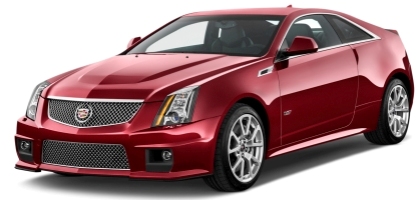April 15, 2015 | Marie Kondo says that "the key to success in tidying is to keep only those items that bring you joy." Whether one is tidying or spring cleaning or reinventing a car brand, these are words to live by. Reading Johan de Nysschen's open letter, I wonder if de Nysschen might have the Konmarian discernment required to eliminate multiple horn honking technologies, replacing some with quieter technology that's already an industry standard, and replacing others with existing and underutilized silent GM and OnStar technologies. The Daring asks us,
How dare a fashion intern become an arbiter of style?
How dare a Wall Street analyst fight disease with DNA?
How dare a hairdresser bring the internet to Africa?
How dare a director take 12 years to shoot one film?
How dare a college dropout invent the personal computer?
How dare a 112-year-old carmaker reinvent itself?
You might ask me,
How dare an automotive lay person with no industry credentials or experience offer technical prescriptons to the president of an iconic luxury brand?
I dare because I would love to be able to open my windows without hearing a horn honk every time someone locks a car.
And I do have a credential: my average tolerance for noise. I can sleep through the sound of a siren-based car alarm and barely notice motorcycle noise, fog horns, train horns, and leaf blowers. If remote lock honking could bother someone with my average tolerance for noise, one day it may draw more substantial criticism as more people become aware of it and others become tired enough of it to finally complain. The majority of stakeholders may eventually stop using horn honking for non-emergency scenarios, and if that happens, others will wish that they had paid attention and moved away from it sooner.
The concept of creating quieter interiors to keep traffic sounds out has been around for decades. Others have discussed the sustainability of active horn honking given the changing landscape of driving, without addressing the fact that half of all cars manufactured for the North American market feature a broad array of horn honking technologies for cars that are parked.
| Horn technology 1962 and 2015, Cadillac and other GM brands, North American market | ||
| ||
 |
| 
|
| ||
| Horn honks to warn of danger |
|
Horn honks to warn of danger
Horn honks for lock feedback
Horn honks to "locate" car in parking lot
Horn honks with "panic alarm"
Horn honks with TPMS when filling tires with air
Horn honks with remote start
Horn honks with charge (E models)
Horn honks with pedestrian friendly alert
Horn honks to indicate key left in car
Horn honks as part of car alarm signal
|
Johan de Nysschen describes "a brand character that symbolizes quality and respect" and "shaping the future of the luxury automobile industry" and "disruption to the established order." Nothing could match those aspirations more closely than the act of transitioning away from using disrespectful and discordant horn honking technology as feedback for multiple non-emergency scenarios. Reinvention involves letting go of things that aren't working. Being the best involves listening to your own customers' comments about a technology that wakes people up and causes friction between neighbors. And sometimes being the best means buckling down and taking care of tasks one doesn't want to - tasks that won't win accolades or lead to awards. No one gave Toyota an award when the company transitioned from horn-based lock feedback to an electronic tone more than a decade ago, and no one awarded Toyota when the company refined the tone to its current sound, which is slightly softer.
No awards. No accolades. Just word of mouth. When car owners talk or post about the quieter sound they wish their cars had, they mention Toyota and Lexus more often than other brands' acoustic alerts.
Few things say "luxury" like locking a door with as little noise as possible, just as few things say "not luxury" or "low quality" or "cheap" or "not well thought out" like a horn honk to confirm lock status. Providing a deliberately quieter feedback technology to your customers is not something to do to achieve a level of status or change opinions. Doing so would just be one of those details one takes care of knowing there will be zero back patting simply because it results in higher quality and the greatest possible consideration of people who buy your products and their neighbors who share space with your products. Reinvention is not possible without giving up things that aren't working and that are creating problems.
(Close browser to return to Green Car Integrity)